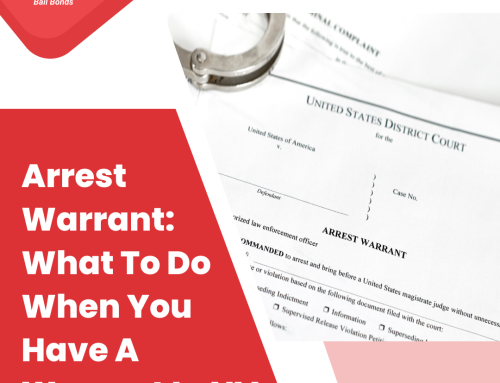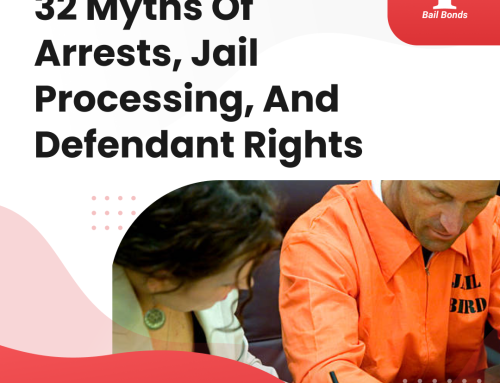1. Cash Bail
This is one of the most common types of bail, which, as the name implies, means that the defendant pays for their bail amount with cash, credit card, money order, or cashier’s check.
Note: Personal checks are not usually accepted when paying bail. Also, when paying cash bail, the defendant has to pay the amount in full at the time of posting.
Although many people pay cash bail, not everyone chooses this option because courts can and do seize bail money if certain bail requirements are not met.
Another significant downside to paying cash bail is that the money remains on hold until the case is closed, meaning a person has no access to the money they put up for bail for weeks, months, or in extreme cases, even years.
2. Property Bond
If the defendant cannot pay cash, they can use their property to post a property bond.
3. Surety Bail Bond
This is the option we recommend. Getting a surety bail bond is arguably the most convenient way to post bond.
The premium for bail bonds is set at 15% in Nevada, which means that you only pay $150 (plus jail fees) on a bail amount of $1,000. This saves you from having to pay a huge amount on bail upfront.
Another advantage of using bail bonds is that they give you access to professional guidance and support. For instance, if you miss out on one of your court hearings for whatever reason, your bail bond company will help get you back on track by filing an appeal with the court or requesting that the judge make a new schedule.
This is how your bail bond agency protects you and also keeps the bail money from being forfeited.
4. Active Arrest Bail Bond
An active arrest bail bond (also called a warrant bail bond) is a unique type of bail bond issued before an arrest is made. The defendant arranges the bond with the help of their defense attorney and bail bond agency, then goes to the police station to turn themselves in.
One advantage of using warrant bail bonds is that the defendant does not spend any time in jail and is immediately released after the booking process.
Types of Bail Based on Crime
In Nevada, bail is set according to a bail schedule. The schedule is a list of bail amounts assigned to specific crimes. If the bail amount for a crime is not listed on the bail schedule, the court will set bail on a case-by-case basis.
The bail schedule is meant to be a guide for setting bail, but it is not binding on the court. This means that the court can choose to set bail higher or lower than the bail amount listed on the bail schedule. In some cases, the court may even choose to release a defendant on their own recognizance.
Domestic Violence Bail Bonds
In Nevada, bail for domestic violence offenses is set at a minimum of $3,000 in Nevada for first-time offenders and up to $20,000 for felony-level domestic violence charges.
The bail amount is set by the court and is based on the severity of the offense and your criminal history. If you are unable to afford bail, you may be able to obtain a bail bond. A bail bond is a guarantee that you will appear in court as required.
The bail bondsman will post bail on your behalf and charge you a premium. If you fail to appear in court, the bail bondsman will be responsible for paying the bail amount in full.
Driver Under the Influence (DUI) Bail Bonds
In Nevada, it is illegal to drive a vehicle with a blood alcohol concentration (BAC) of 0.08% or higher. This offense is commonly known as driving under the influence (DUI).
A person arrested for DUI can post bail to get out of jail until his or her court date. The bail bond amount is set by the court and is based on several factors, including the severity of the offense and the defendant’s criminal history.
In most cases, first-time and second-time offenders are considered misdemeanors and will have a bail bond amount of $5,000 or less. However, if the offense is considered more serious, such as involving an accident or injury, the bail bond amount can be much higher.
Felony Bail Bonds
In Nevada, felony bail bonds are higher than misdemeanor bail bonds. For certain serious crimes, the judge may even deny bail, in which case the defendant will be held in custody until their trial concludes.
If you are facing felony charges, it is important to seek the help of an experienced criminal defense attorney.
Get Expert Advice On Bail Bonds
If you are unsure which type of bail bond to use, we recommend talking to a reputable bail bond agency, such as All n One Bail Bonds.
We can guide you through the process. Instead of paying the full bail amount, you or your loved one will only need to pay 15% of the bail amount set by the judge.
No Money Down Bail Bonds
No-money-down bail bonds are intended to help people post bail when they cannot afford the full amount. The program requires the person seeking help to sign a contract agreeing to repay the bond over time. A co-signer may be used to get this type of bail bond.
Call All n One Bail Bonds today for more information.





